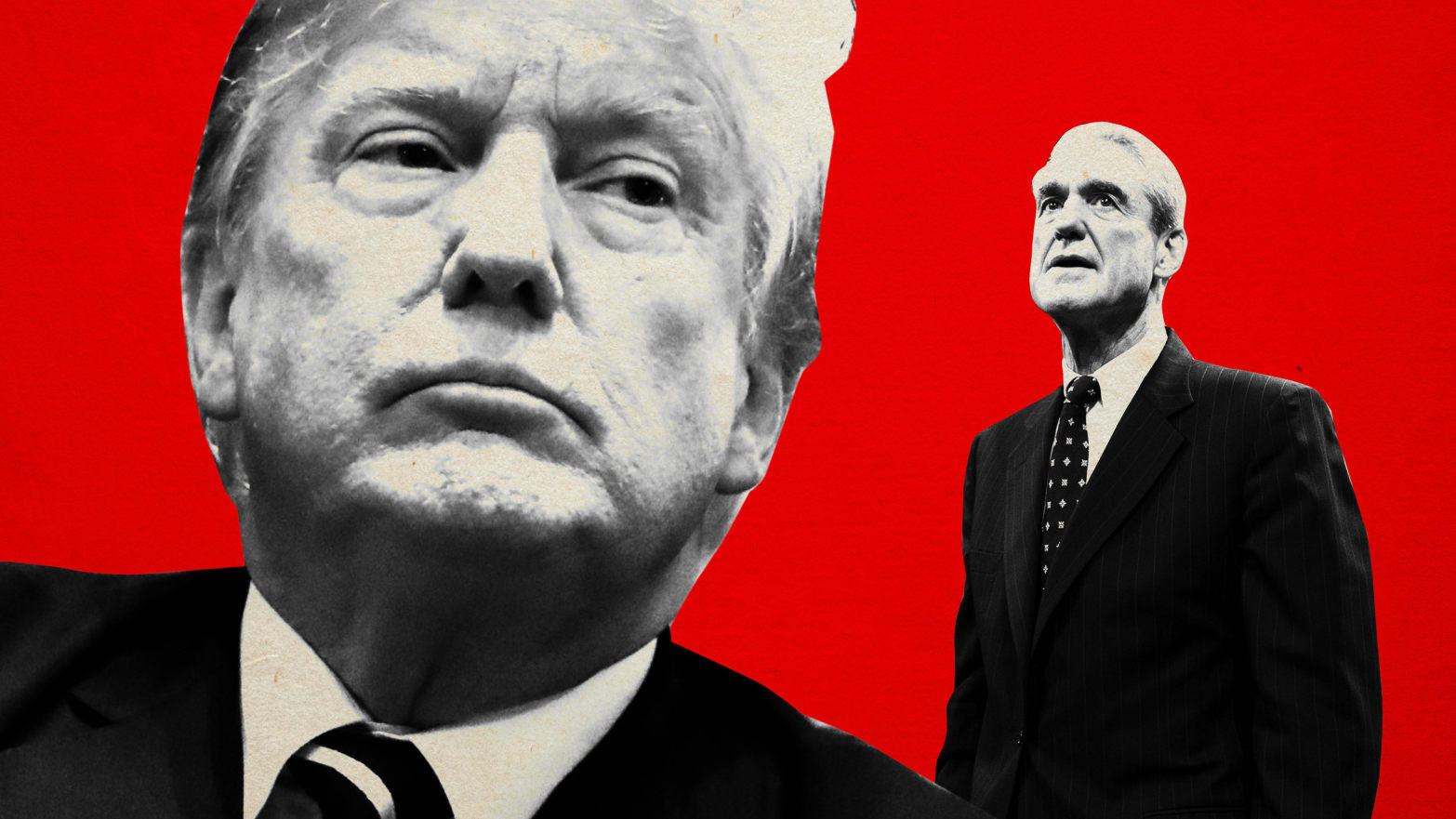Special Counsel Robert Mueller’s investigation did not find the Trump campaign worked with Russia to interfere in the 2016 election, Attorney General William Barr told congressional leaders on Sunday, but it stopped short of clearing the president of obstruction of justice.
“[T]he investigation did not establish that members of the Trump Campaign conspired or coordinated with the Russian government in its election interference activities,” Mueller’s report said, according to a summary delivered by Barr to Congress.
During a probe that lasted 22 months and was handed to Barr on Friday, Mueller did gather evidence on the question of whether President Trump obstructed justice, but determined it was “insufficient” to merit a conclusion the president acted to stop or stymie the investigation.
“While this report does not conclude that the President committed a crime, it also does not exonerate him,” Mueller said regarding obstruction, according to Barr.
Trump almost immediately said the opposite in claiming victory en route to Air Force One in Florida where he has largely stayed quiet through much of the weekend.
“There was no collusion, there was no obstruction, none whatsoever. It was a complete and total exoneration,” the president said. “It was a shame our country had to go through this. To be honest, it was a shame your president had to go through this before even I got elected, it began.”
Trump likened the investigation to a plot against him and said the people involved should be investigated.
“It began illegally and hopefully someone will look at the other side,” he said. “This was an illegal takedown that failed. And hopefully somebody's going to be looking at the other side.”
Democrats promised to call Barr before Congress and to continue the push for the entire report to be released.
“The fact that Special Counsel Mueller’s report does not exonerate the president on a charge as serious as obstruction of justice demonstrates how urgent it is that the full report and underlying documentation be made public without any further delay,” House Majority Leader Nancy Pelosi and and Sen. Charles Schumer, the Senate’s top Democrat, said in a joint statement.
The determination not to accuse Trump of obstruction of justice was more complicated than the finding of no collusion, according to Barr’s summary.
Mueller’s report “set out evidence on both sides” of the obstruction question, Barr wrote, and leaves unresolved “difficult issues” of the law concerning the crime. With Mueller neutral, the decision to reach a legal conclusion was left to Barr and Deputy Attorney General Rod Rosenstein, who appointed Mueller as special counsel and oversaw most of his work.
After consulting with Justice Department officials and reviewing guidelines for how crimes are prosecuted, Barr said they determined any evidence Trump committed an obstruction-of-justice offense was “insufficient.”
Barr seemed to say part of the reason is because Mueller found no collusion.
Barr wrote that obstruction of justice consists of three things: a person acted to obstruct a proceeding, the action had a nexus to a proceeding (such as a criminal investigation), and the person acted with “corrupt intent.” In a trial, all three elements have to be proven beyond a reasonable doubt. Barr suggests the absence of an “underlying crime” means there is reasonable doubt to Trump’s intent.
The four-page memo is just an overview of what Mueller’s team found after deploying 19 lawyers, 40 FBI agents who issued more than 2,800 subpoenas, and interviewed roughly 5,000 witnesses.
Barr delivered the summary to leaders of the House and Senate judiciary committees on Sunday afternoon, ending nearly two days of waiting, and kicking off a new stage in the battle over how much of Mueller's findings will become public, and when.
Barr said “my goal” is to release as much of Mueller’s report as he can, saying he will determine over the coming days how much grand jury material—traditionally subject to rules of secrecy—is in Mueller’s report before sharing it with Congress.
Democrats and Republicans in the House and Senate have agreed that the report should be made public as soon as possible. Top Democrats spent the last two days trying to shut down the possibility that Barr would brief only a select group of lawmakers about the most classified elements of Mueller's report.
On Sunday morning, Nadler said that he would subpoena the Department of Justice, and file a lawsuit if necessary, to ensure lawmakers have the information they want from Mueller's report. On CNN, Nadler said that he trusts the DOJ but insisted Congress should have access to Mueller's primary evidence so members can come to their own conclusions.
Nadler, along with House Intelligence Committee Chairman Adam Schiff (D-CA), made clear that Mueller's findings would support ongoing congressional investigations into the president's ties with Russia that go beyond the scope of whether or not Trump broke the law.
As Congress and the DOJ gear up for what could be a protracted legal battle over Mueller's findings, Trump allies on the Hill framed the weekend's developments as a vindication of the president and criticized Democrats for setting up further investigations.
The top Republican on the House Judiciary Committee, Rep. Doug Collins (R-GA), said on Fox News Sunday that it is not Barr's job to give congressional Democrats information that could fuel their investigations.
“When it comes back not what they want,” Collins said of the report, “now they’ve decided that they can just try to go around it and draw implications so others can doubt it.”


